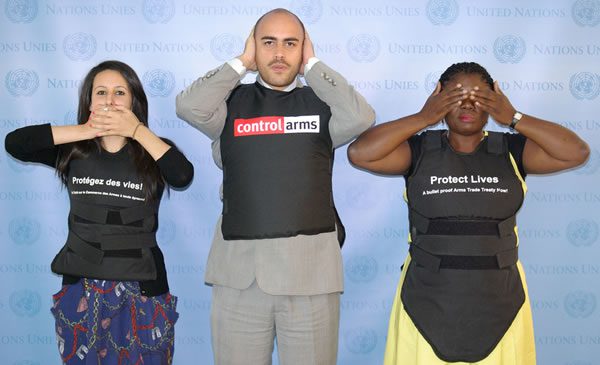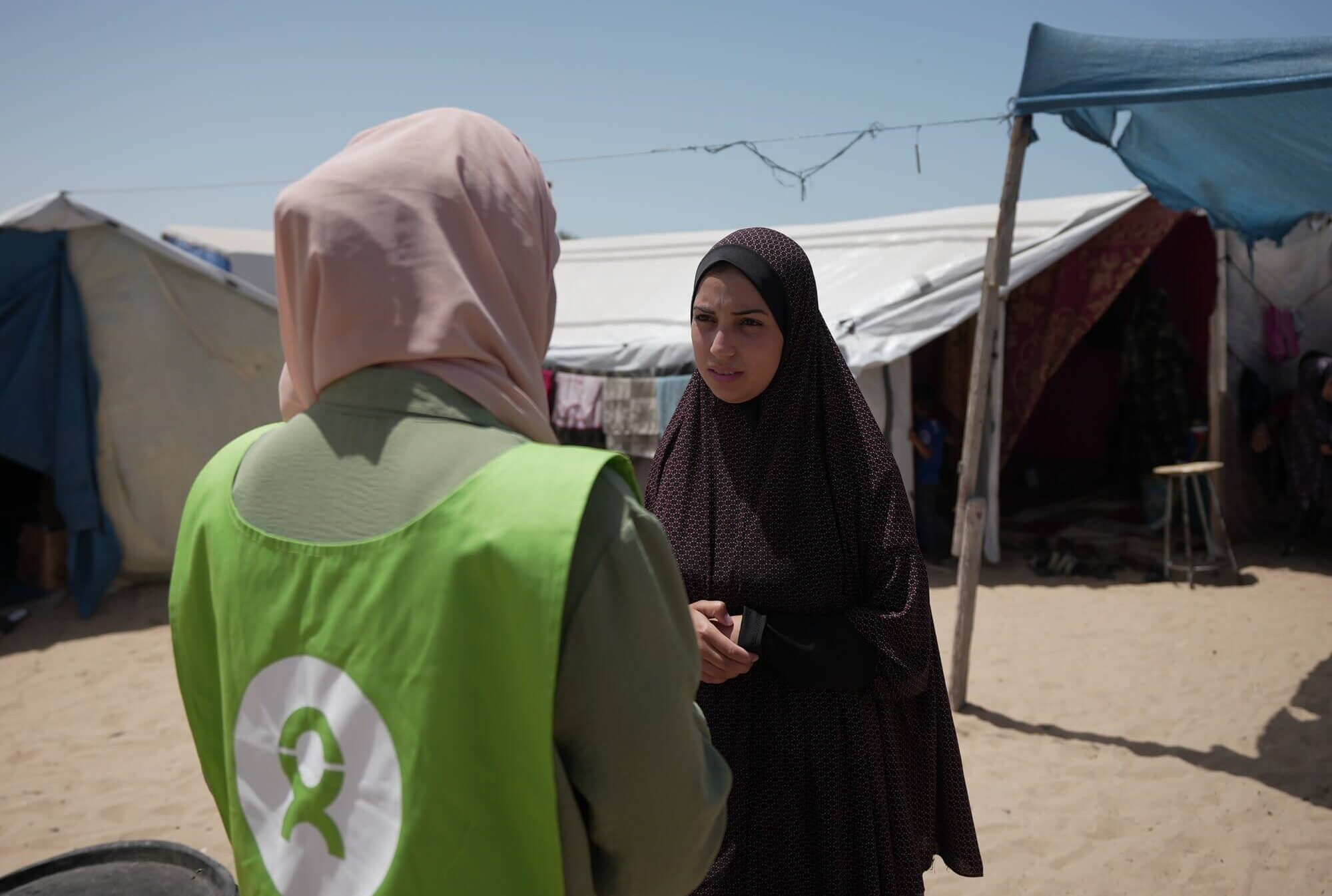by Louis Belanger
After years of relentless campaigning to ensure States negotiate a strong global treaty to regulate the arms trade, civil society groups have been denied participation in key discussions. As Member States have started negotiations this week at the UN Headquarters in New York, Chair Ambassador Roberto Garcia Moritan of Argentina, announced late on Wednesday (July 14) that civil society groups would no longer be allowed to be present during crucial discussions.
Ambassador Moritan is chairing the preparatory talks that are running until next week. The decision to close the meeting came as a surprise as numerous Member States had made earlier statements on the importance of openness and transparency in the process.
“Some States want to hide behind closed doors because they don’t want people to see how much they are prepared to protect trading interests at the expense of protecting the people that bear the brunt of illicit arms deals. This is a major let down during the first week of negotiations,” said Denis Mizne, Director at Sou da Paz in Brazil.
Mizne continued: “As soon as the negotiations turned to the content of the treaty, the doors have been slammed shut. This is giving in to demands from some states that want to strip the treaty of key provisions such as those on human rights and international humanitarian law.”
Civil society has initiated this process along with key governments and has been a constant voice to ensure that key provisions on development, human rights and international humanitarian law will be part of a future deal. Civil society groups are now urging Ambassador Moritan to reconsider and let them join a more transparent process.
“This is very disappointing and worrying. Without the experience and expertise of civil society, it will make it harder to get a strong treaty that reduces suffering and saves lives. This is pandering to a small number of states that want to undermine the treaty,” said Baffour Amoa, Director at WANSA in Ghana.
Civil society has been part of previous international negotiations such as for the Convention of Rights of Persons with Disability (CRPD) and during global climate change negotiations.
“Hundreds of civil society organisations around the world have been advocating to ensure that a future arms trade treaty would be truly effective in preventing the transfer of arms that fuel conflict, human rights abuses, corruption, crime, gender-based violence, terrorism and poverty.” said Helena Koumi, Programme Officer at Swefor.
Negotiations have finally started four years after the UN General Assembly decided by an overwhelming majority to negotiate an Arms Trade Treaty. The future treaty would establish international rules and standards to better regulate the arms trade and close current loopholes. The final negotiating conference is set to take place in 2012.



